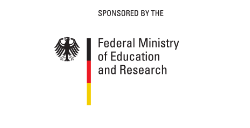Quick facts
Project title:
Biodiversity Processing HUB™
Description
Biodiversity Processing HUB™
Natural history Museums like the Zoological Researchmuseum Alexander Koenig play a crucial role in documenting the global biodiversity and serving as a long-term repository of these vouchers for the scientific community, and the public. Currently research facilities are faced with overcoming the taxonomic impediment getting needed species level information linked with (threated) taxa in a spatial temporal relation (Wheeler et al. 2004). This is absolutely necessary in order to understand species distribution and turnover to deviate policies for nature conservation. In addition the rapid ongoing irreversible biodiversity loss all over the World, forces museums to document the remaining global biodiversity as fast as possible before its final extinction.
Today it lasts about 21 years on average from collecting the sample until its scientific description making a species name available (Fontaine et al. 2012). On the one hand, this massive backlog originates from the few remaining taxonomists overburden with numerous unsorted materials for identification. On the other hand heavy work load prevents contemporary pre-sorting of mass samples by museums technical staff to make this material accessible and attractive for (external) taxon experts.
How to overcome this recent biodiversity dilemma and speed up the availability of material with undescribed diversity?!?
-
Teach practical biodiversity courses at Bachelor & Master level
-
Offer internships & Theses with focus on Arthropod diversity
-
Involvement of exchange students & volunteers
By means of this combined man power & expertise we transform this unmanageable raw soup into accessible entities attractive to the few remaining taxonomists.
Currently two BMBF funded projects (CaBOL & GBOL III) use the facilities to rapidly process their extensive Arthropod material collected in the Caucasus and Germany.
Join
You wanna join our team and learn about Caucasian & German arthropod diversity?!? We can offer internships and would be glad to discuss potential thesis subjects with you. Get in touch with us: bph [at] leibniz-zfmk.de
Donate
You wanna support our approach monetary?!? Get in touch with us: bph [at] leibniz-zfmk.de
We can issue a donation receipt…
Teaching courses coming
Winter Semester 2022/2023:
WBIO-C-10 Biodiversitätsforschung: from 09.01.2023 to 03.02.2023 [Biology Bachelor 10SWS]
Courses held
Winter Semester 2021/2022:
WBIO-C-10 Biodiversitätsforschung: from 22.11.2021 to 17.12.2021 [6 Biology B.Sc. students 10SWS]
Winter Semester 2020/2021
WBIO-C-E2 Biodiversitätsforschung: from 30.11.2020 to 23.12.2020 [5 Biology B.Sc. students 10 SWS]
641041001 Biodiversity: from 22.03.2021 to 26.03.2021 [14 Geography B.Sc. students 1 SWS]
References
Fontaine, B.; Perrard, A. & Bouchet, P. (2012): Twenty-one years of shelf life between discovery and description of new species. Current biology 22(22): R943-R944. DOI: 10.1016/j.cub.2012.10.029
Wheeler, Q.D.; Raven, P.H. & Wilson, E.O. (2004): Taxonomy: impediment or expedient? Science 303(5656): 285. DOI: 10.1126/science.303.5656.285
Location







